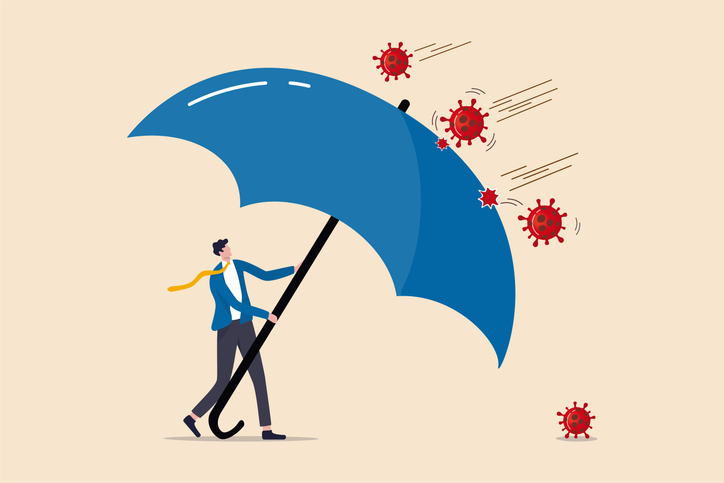This year is shaping up to be an intense year for hurricanes. The CDC and other agencies are urging individuals as well as business and property owners to be prepared not only for a busier-than-usual season, but for the additional complexities and risks of managing hurricane response in the midst of the COVID pandemic.
Here is what you need to do.
1. Make plans NOW and update frequently
It is always important to be prepared in advance for potential disaster, but even more important under current conditions. You will need more and different supplies than you usually would, and your usual plans may not be effective. It’s critical that you review any existing plans, update them, and keep them updated according to the latest CDC guidelines for hurricane preparedness during COVID.
2. Update your “go kit” to account for COVID
If you live in an area likely to be impacted by hurricanes this season, you should already have a “go kit” to grab in the event that you must evacuate or seek emergency shelter. Go kits generally include food, safe water, first aid supplies, clothing and other items you and your family will need. Due to the pandemic, your go kits should also include:
- Hand sanitizer with at least 60% alcohol
- Bar or liquid soap
- At least 2 masks per person
- Disinfectant wipes
- Additional food and other supplies to account for additional time it may take to evacuate fully
- Additional food and water to account for the likely closure of restaurants and other sources of food along your escape route
3. Plan escape routes and times to account for COVID-induced limits and closures
Social distancing and other realities of the pandemic have forced many emergency shelters and rest stops to severely limit the number of people they can safely serve. In some cases, shelters and rest areas may be closed entirely.
Take the time to identify the specific shelters, rest areas, and other amenities you will rely on for both your emergency shelter and evacuation plans. Contact each one to learn what limits they have implemented, and make alternate plans to account for closures and limits. Expect that your evacuation will take longer than it usually would, and make plans for your family to stay safe and fed during evacuation.
4. Contact your doctor and pharmacist about prescriptions now
Make plans to have extra prescription medication on hand now if possible. If it’s not possible, make plans with your doctor for what will happen if you need to renew your prescription from another city or if you can’t come into the office to renew.
5. Make plans for your pets
Whatever plans you have already made for your pets, make sure they are still available even with COVID restrictions. You should also check on the pet-friendliness of any amenities you plan to use during an evacuation, as well as the availability of animal rest areas along your route.
6. Discuss plans in advance with friends and family
If your evacuation plans include staying with friends or family, discuss your COVID safety plans in advance. You should consider matters such as whether and how you will maintain distancing and hygiene between families sharing a household, what rules will be in place regarding masks and hand-washing, and what you will do if one or more members of the household display symptoms or test positive for COVID.
7. If you own property or a business in a hurricane-prone area, assemble and update your disaster response team now
It is more important than ever for businesses and property owners to have their plans and teams in place in advance. Most hurricane response teams will be very busy this year, and the likelihood that they will be available to new clients in the midst of a disaster is very low. If you don’t already have a relationship with a team, you may find yourself on a long waitlist.
Additionally, you need to take the time to contact your teams and make sure they have their COVID-relevant plans in place so that they can respond to you quickly and safely.
A heavy hurricane season is not good news for anyone, but it doesn’t have to be catastrophic if you’re well prepared. We hope these tips help you to make good decisions for your business, property, and family. We would love to work with you to develop your response plans and support you in the event of a disaster. Contact us today.



